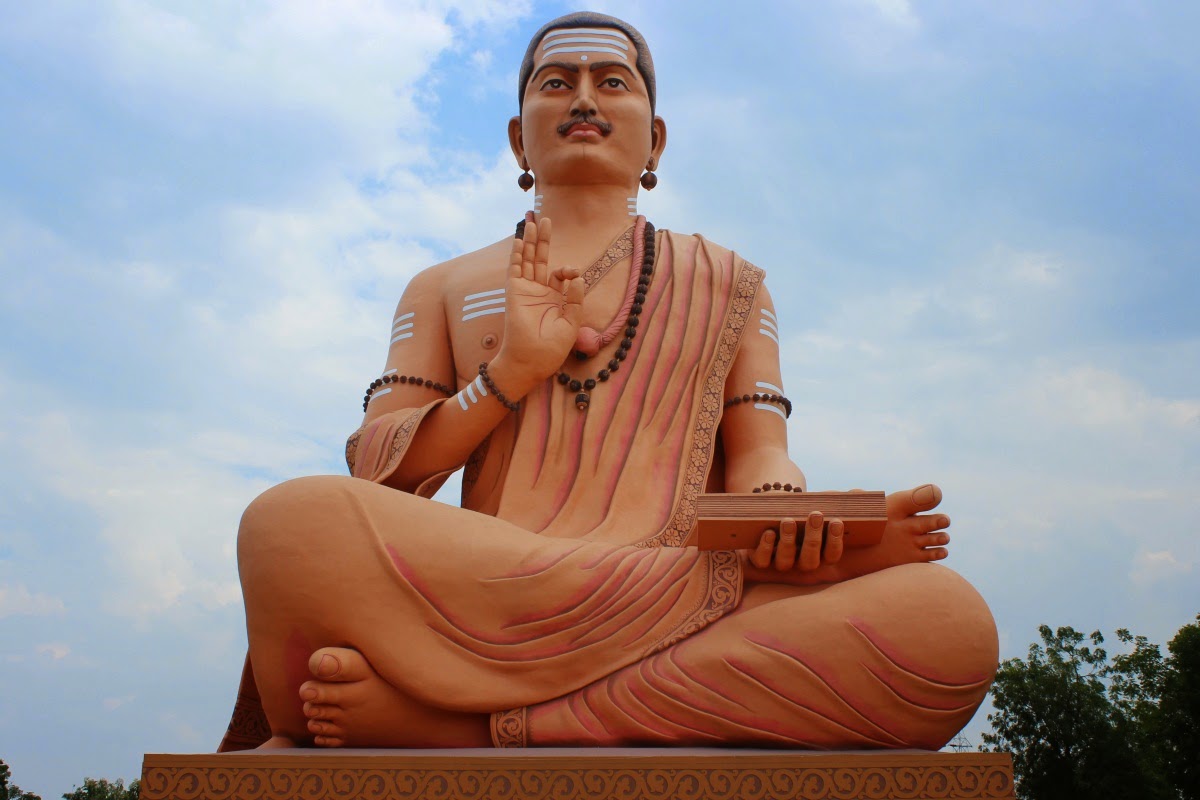The Digitization of the Cultural Heritage in Bidar
Basaveshwara has stood immortalized at a 108ft tall in Basavakalyan, a town in Bidar District of the state of Karnataka, India, and his teachings are now on the Internet. How? Read on.
Basava was a Kannadiga social reformer who was revered in Karnataka for his valiant fight against orthodoxy and casteism. His efforts to vanquish the notions of caste remain immortalized within Indian history.

The teachings and sayings of Basava are included within the Basava Purana, which is the holy book of the Hindu Lingayat community. A lot of legends and teachings regarding Basava say that his philosophy was compiled after his death. Palkuriti Somanatha and Bhima Kavi managed to compile the Purana in the 13th and 14th centuries. The vachanas or teachings of Basava himself were thus posthumously recorded. However, the accuracy of the information and the stories within the Purana was questioned since it was constructed by piecing together fragments of the memories and experiences of the followers of Basava, who he’d like to call Virashaivas, and they shared their roots with the ongoing Tamil Bhakti movement of the same era. Basava’s teachings mostly pander to spiritual development, treating one’s own body as a temple of sorts.
In 2003, the then President of India, erected a 108ft. tall statue of Basaveshwara in Bidar. It is a cultural marvel, and is the tallest statue of the saint anywhere. The statue is a cultural hotspot in Bidar, and attracts a large number of visitors throughout the year. To mark the installation of the statue, Kayaka Yogi Houses were erected at Basavakalyan.
Not only the statue, but a recent Wikipedia edit marathon (started by the Rotary Club, then presided over by Mr. Rishikesh Desai) facilitated a program in collaboration with the Basavakalyan Development Board in Bidar, where the vachanas or teaching of Basaveshwara were edited and recorded digitally. This gave a lot of people convenient digital access to these scriptures. A website called Vachana Sanchaya has been created to access them. There are also plans to create a mobile application version of the website created for the purpose of documenting these teachings.
But it wasn’t only the scriptures of Basaveshwara that were being digitized in Bidar.

It was, in fact, it is the digitization of tourism and culture that is being heavily encouraged and promoted in Bidar.
According to Dr. Khaja Mohteshamuddin, the current president, Rotary club of Bidar, “The Wikipedia Edit Marathon we an initiative that involved around 300 to 400 students from several colleges across Bidar, who were trained in two phases, to edit and write Wikipedia articles about the Bidar Fort (located a few kilometres from Basavakalyan).
“We managed to gather articles in several different languages as well, in order to make it easier for foreign visitors to access cultural information with ease,” he said.
Apart from the innovative edit marathon, Bidar has displayed the use of technology to dispel information about the heritage and culture in Bidar. For instance, the pro QR Codes made from special Bidri alloy, which is a combination of Copper, Bronze, Zinc and Bidri mud were installed outside Bidar fort, and these linked to the articles written by the various contributors.
The aforementioned ventures are revolutionary because they integrate digital media with tangible culture. When one is able to garner awareness and attention from people about culture, it is often due to the convenience of digitzation. Allowing people to access vachanas online gives them easier access to religious ideology, and the QR code concept not only integrates Bidri culture into its very physicality, but also gives people the option to access cultural data with the press of a camera button. Thus, digitization definitely plays an important role in rethinking the approach we take when archiving culture, and not just that, it is a unique way of preserving culture. And isn’t Bidar an archetype of what others should be doing? Think about it.
Written by: Shantanu Tilak
GoUNESCO is funded by Go Heritage Runs an award-winning fun run series at heritage sites across the country. Our next run in Bidar is on Sunday, December 10, 2017 and all participants will received handcrafted Bidri souvenir medals. Sign up here!

